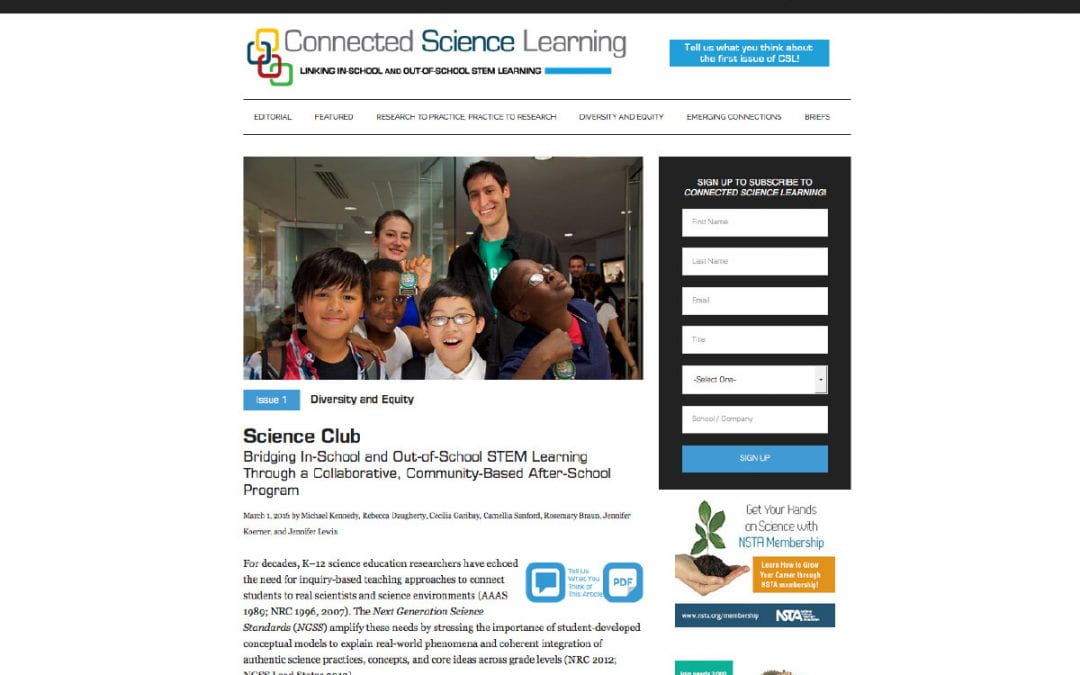Science Club has been profiled in a new journal! The journal is called Connected Science Learning. It is dedicated to high-quality STEM education programs which bridge in-school and out-of-school settings, helping kids get the most out of science.
Science Club is featured in the very first issue, which was published today. The article highlights the program’s unique model which uses long-term mentorships to:
- develop scientific inquiry and skills;
- encourage cohesive, investigative learning;
- foster youth science identity;
- develop authentic science skills assessment in an informal learning environment;
- and build a science community comprised of scientist-mentors and underserved urban youth.
For the first time, the information we found out in our research project about science learning have been published. We found:
- Youth participation is equivalent in magnitude to raising a student one full aptitude level (e.g. from low to middle or middle to high) among their peers.
- Science Club participation results in long-term science skills gain across all aptitudes and grade levels.
- All participants associate science with their daily lives and believe science is important to their future career choice (as well as inspiring future scientists, aspiring basketball players cited optimizing ball arc to maximize the probability of making a basket, for example).
We also learned Science Club influenced students and mentors when thinking about their future jobs and interest in science.
- Science Club alumni, now in high school and college, are choosing STEM careers at a significantly higher rate than their peers. As a result, there is an unprecedented increase in the number of Boys & Girls Clubs of Chicago alumni entering these fields.
- More than 80% of Science Club mentors report the experience taught them skills such as teaching, mentoring and science communication.
- Two-thirds of Science Club mentors, primarily graduate students at Northwestern University, say the experience has influenced their career direction.
The journal article was authored by the Michael Kennedy and Rebecca Daugherty (from our Leadership Team!) who are part of Northwestern University’s center for science education and public engagement. Co-authors on the article included Science Club’s external evaluators and partner teachers from Chicago Public Schools.
The full journal article (and some photos of our members and mentors!) is now available on Connected Science Learning, and subscriptions are free if you register your email address.

